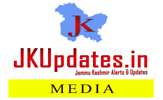27th & 28th October 2024 Daily Current Affairs
1. Which state government recently launched a cultural initiative called the “Writers Village”?
Correct Answer: A [Uttarakhand]
Notes:
The “Writers’ Village” is a new cultural initiative in Dehradun, Uttarakhand, promoting global literary and cultural exchange. It was inaugurated by the Uttarakhand Chief Minister in Thano on 27th October 2024. This inauguration coincided with an International Art, Literature, and Culture Festival from 23rd to 27th October, 2024. More than 300 writers, artists, and litterateurs from 65 countries participated in the five-day festival. The festival served as a platform to discuss literature, language, and art, promoting Hindi and showcasing Uttarakhand’s cultural heritage.2. Which country named Cyclone Dana, which recently hit eastern coast of India?
The “Writers’ Village” is a new cultural initiative in Dehradun, Uttarakhand, promoting global literary and cultural exchange. It was inaugurated by the Uttarakhand Chief Minister in Thano on 27th October 2024. This inauguration coincided with an International Art, Literature, and Culture Festival from 23rd to 27th October, 2024. More than 300 writers, artists, and litterateurs from 65 countries participated in the five-day festival. The festival served as a platform to discuss literature, language, and art, promoting Hindi and showcasing Uttarakhand’s cultural heritage.2. Which country named Cyclone Dana, which recently hit eastern coast of India?
Correct Answer: C [Qatar]
Notes:
Severe cyclone ‘Dana’ hit India’s eastern coast, bringing heavy rains and winds of 100-120 km/h. It caused major damage to infrastructure and crops in Odisha and West Bengal. The name ‘Dana,’ meaning ‘generosity’ in Arabic, was suggested by Qatar. In Arabic culture, ‘Dana’ also refers to a valuable and perfectly sized pearl, symbolizing beauty.
Severe cyclone ‘Dana’ hit India’s eastern coast, bringing heavy rains and winds of 100-120 km/h. It caused major damage to infrastructure and crops in Odisha and West Bengal. The name ‘Dana,’ meaning ‘generosity’ in Arabic, was suggested by Qatar. In Arabic culture, ‘Dana’ also refers to a valuable and perfectly sized pearl, symbolizing beauty.
3. The Global Ecosystem Atlas initiative was recently launched in Colombia at which event?
Correct Answer: A [United Nations Biodiversity Conference (COP-16), Colombia]
Notes:
The Global Ecosystems Atlas was launched on October 22, 2024, at COP16 of the UN Convention on Biological Diversity (CBD), Colombia. It was developed by the Group on Earth Observations (GEO). It is the first tool focused on global ecosystem mapping and monitoring. It provides critical data on ecosystem health and risks, aiding governments, businesses, and communities in sustainable management. This atlas addresses urgent issues like biodiversity loss, climate change, and land degradation, aiming to improve our approach to protecting essential natural systems.
The Global Ecosystems Atlas was launched on October 22, 2024, at COP16 of the UN Convention on Biological Diversity (CBD), Colombia. It was developed by the Group on Earth Observations (GEO). It is the first tool focused on global ecosystem mapping and monitoring. It provides critical data on ecosystem health and risks, aiding governments, businesses, and communities in sustainable management. This atlas addresses urgent issues like biodiversity loss, climate change, and land degradation, aiming to improve our approach to protecting essential natural systems.
4. Which institute has developed new non-toxic molecules for treating Alzheimer’s disease?
Correct Answer: A [Agharkar Research Institute, Pune]
Notes:
Scientists at Pune’s Agharkar Research Institute created new non-toxic molecules for Alzheimer’s treatment. They used synthetic, computational, and in vitro methods for developing these molecules. Alzheimer’s, the most common dementia type, affects 60-70% of the 55 million people with dementia globally, stemming from hormone imbalances. Researchers developed a quick one-pot, three-component reaction for high-yield molecule synthesis. These molecules effectively target cholinesterase enzymes, increasing acetylcholine levels, essential for memory and learning.
Scientists at Pune’s Agharkar Research Institute created new non-toxic molecules for Alzheimer’s treatment. They used synthetic, computational, and in vitro methods for developing these molecules. Alzheimer’s, the most common dementia type, affects 60-70% of the 55 million people with dementia globally, stemming from hormone imbalances. Researchers developed a quick one-pot, three-component reaction for high-yield molecule synthesis. These molecules effectively target cholinesterase enzymes, increasing acetylcholine levels, essential for memory and learning.
5. National Mission for Manuscripts (NMM), which was seen in the news, was established by which ministry?
Correct Answer: A [Ministry of Tourism and Culture]
Notes:
The Union Ministry of Culture plans to revive the National Mission for Manuscripts (NMM) and may create an autonomous National Manuscripts Authority. Currently, NMM operates under the Indira Gandhi National Centre for Arts. NMM was launched in 2003 by the Ministry of Tourism and Culture with the motto “Conserving the past for the future.” Its goals include documenting, conserving, and sharing India’s vast manuscript heritage, estimated at ten million manuscripts.
NMM maintains a National Electronic Database of four million manuscripts. The mission involves national surveys, conservation training, digitization, public engagement, and has set up over 100 Manuscript Resource and Conservation Centers nationwide.
The Union Ministry of Culture plans to revive the National Mission for Manuscripts (NMM) and may create an autonomous National Manuscripts Authority. Currently, NMM operates under the Indira Gandhi National Centre for Arts. NMM was launched in 2003 by the Ministry of Tourism and Culture with the motto “Conserving the past for the future.” Its goals include documenting, conserving, and sharing India’s vast manuscript heritage, estimated at ten million manuscripts.
NMM maintains a National Electronic Database of four million manuscripts. The mission involves national surveys, conservation training, digitization, public engagement, and has set up over 100 Manuscript Resource and Conservation Centers nationwide.

